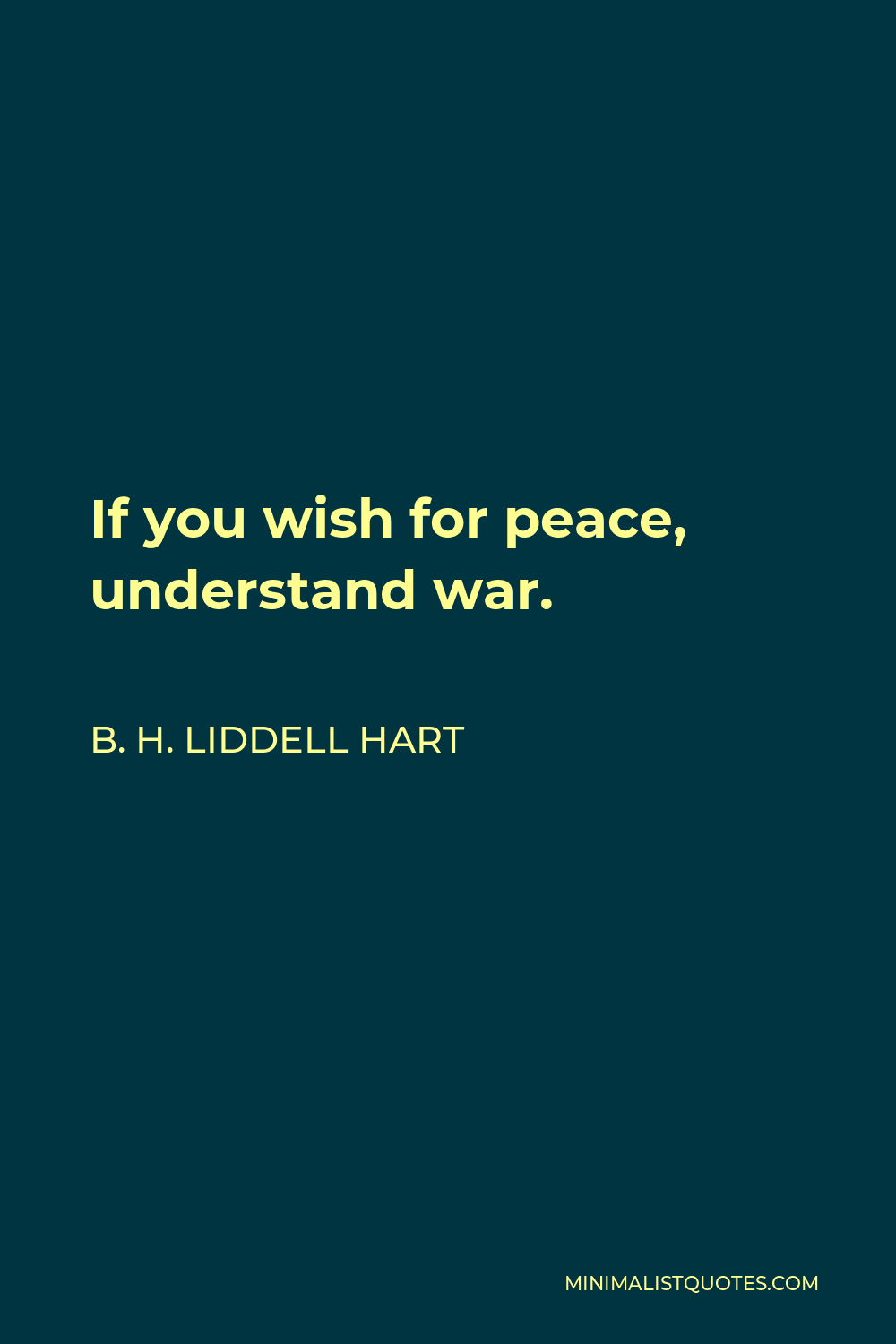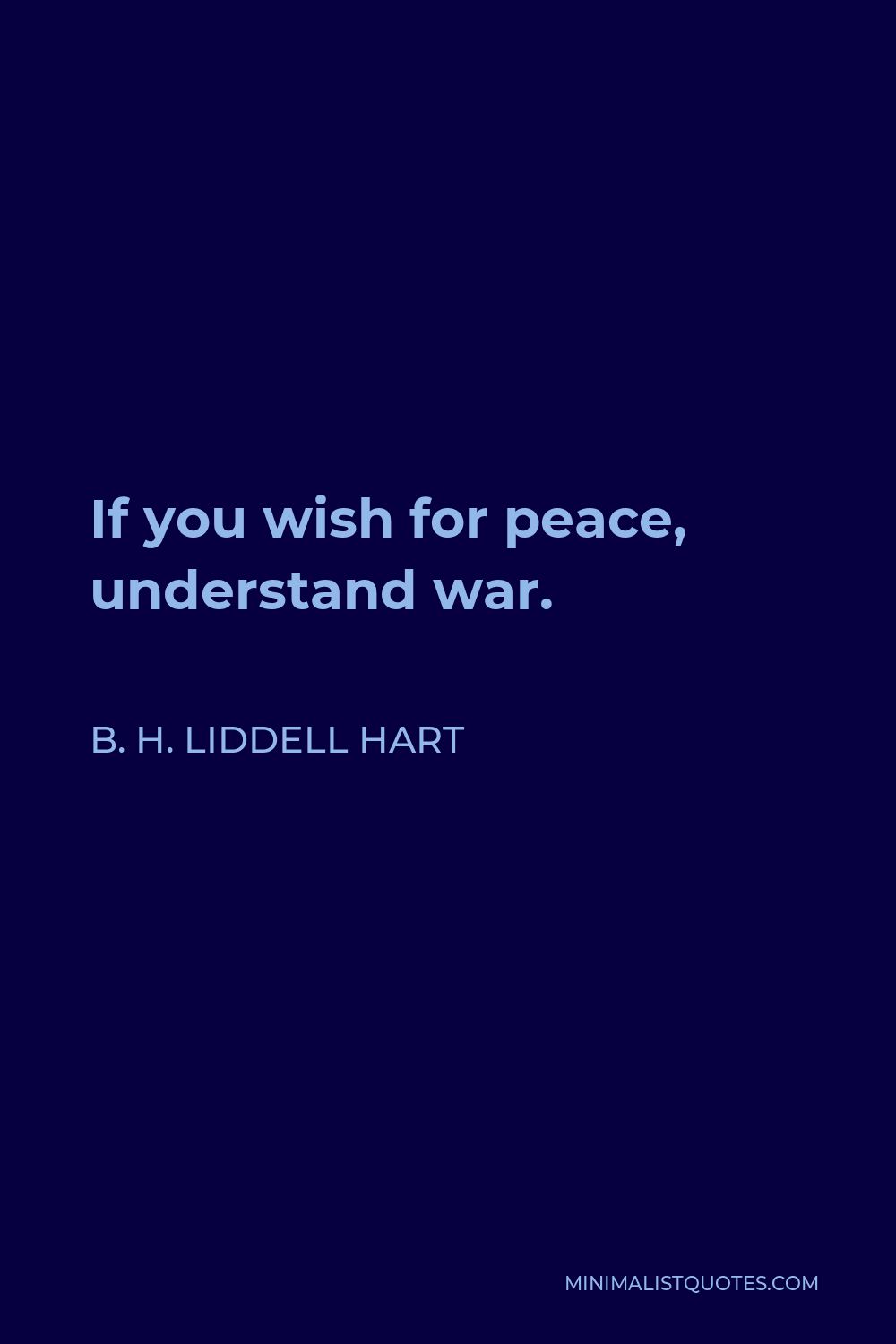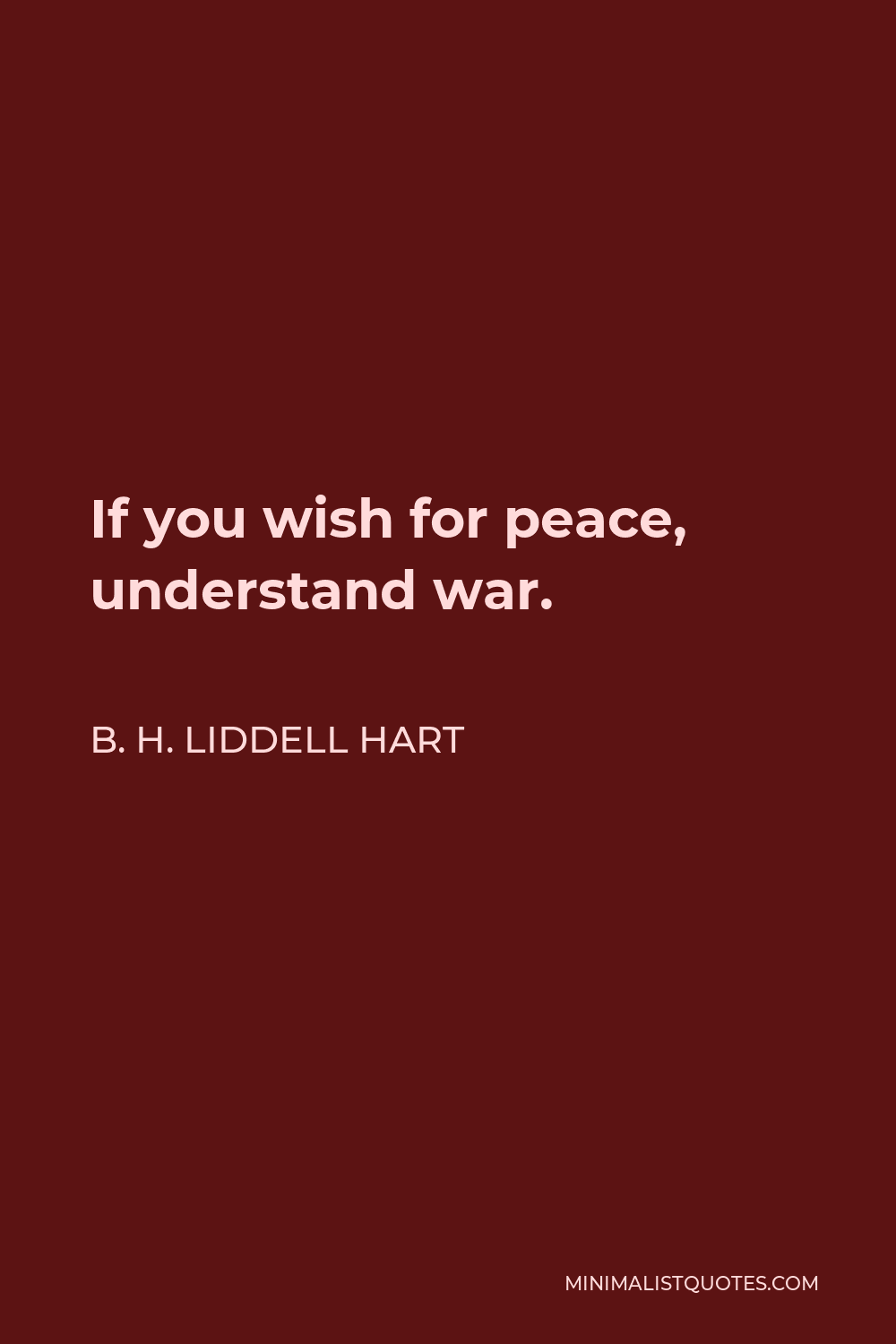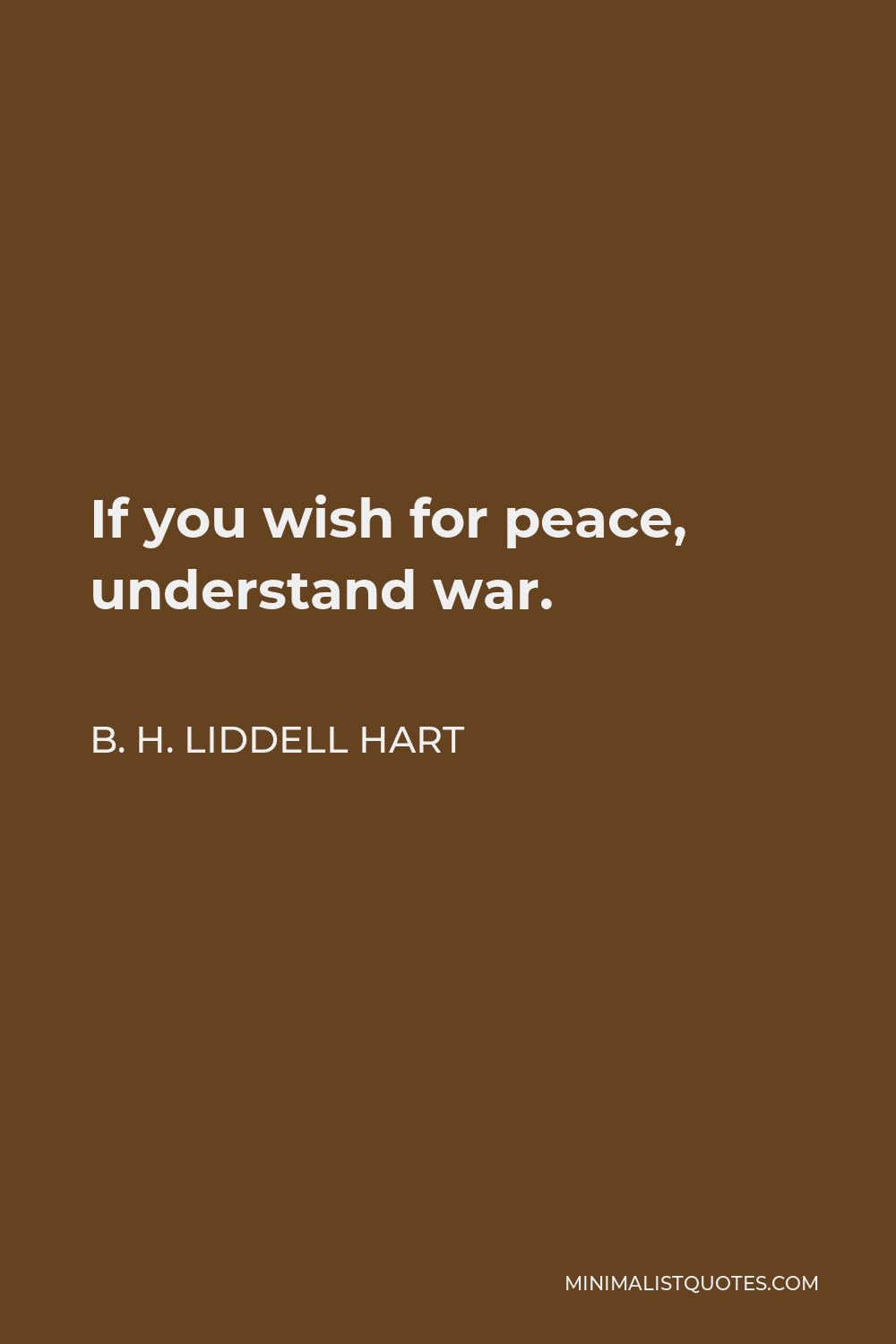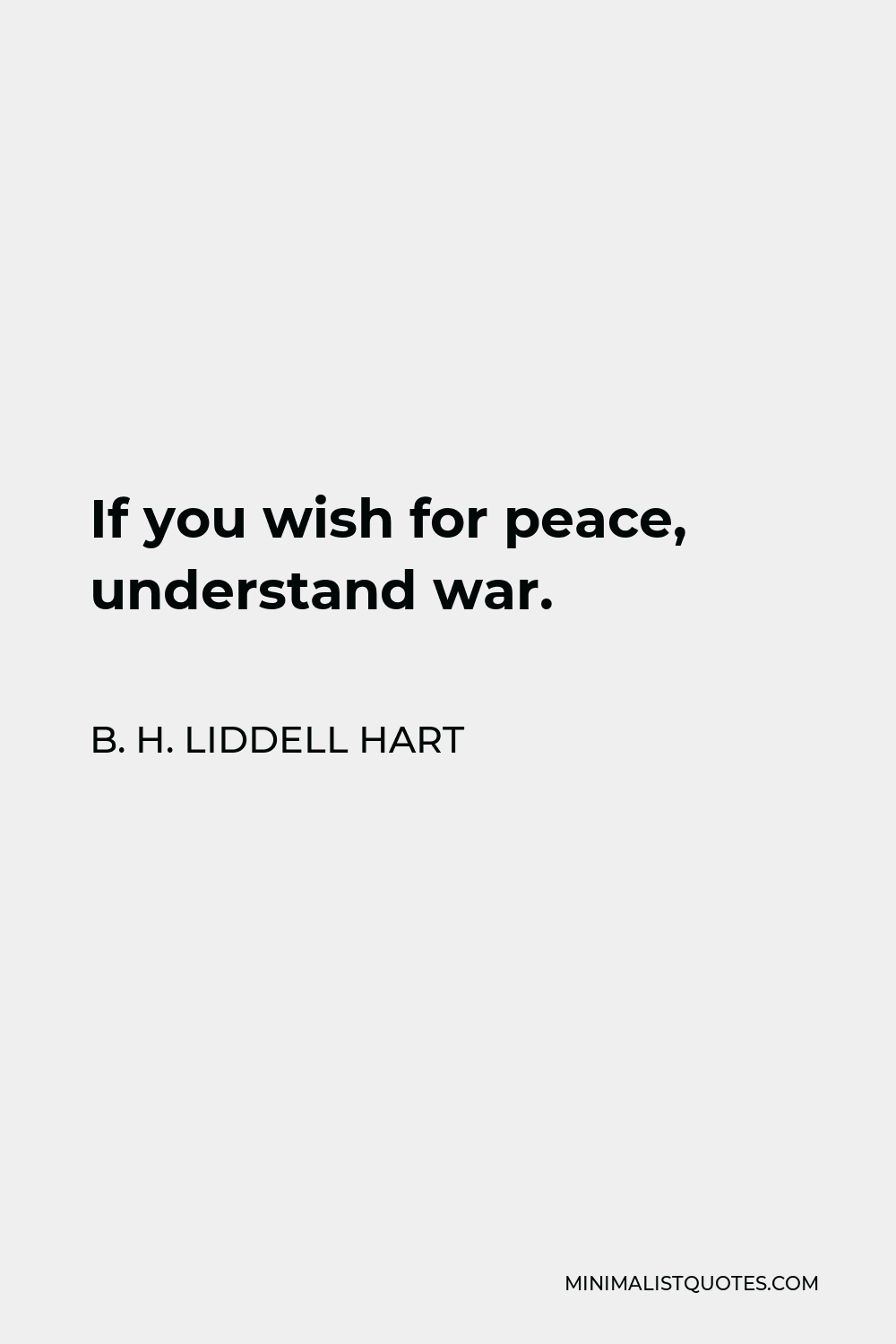In war, the chief incalculable is the human will.
B. H. LIDDELL HARTIf you wish for peace, understand war.
More B. H. Liddell Hart Quotes
-





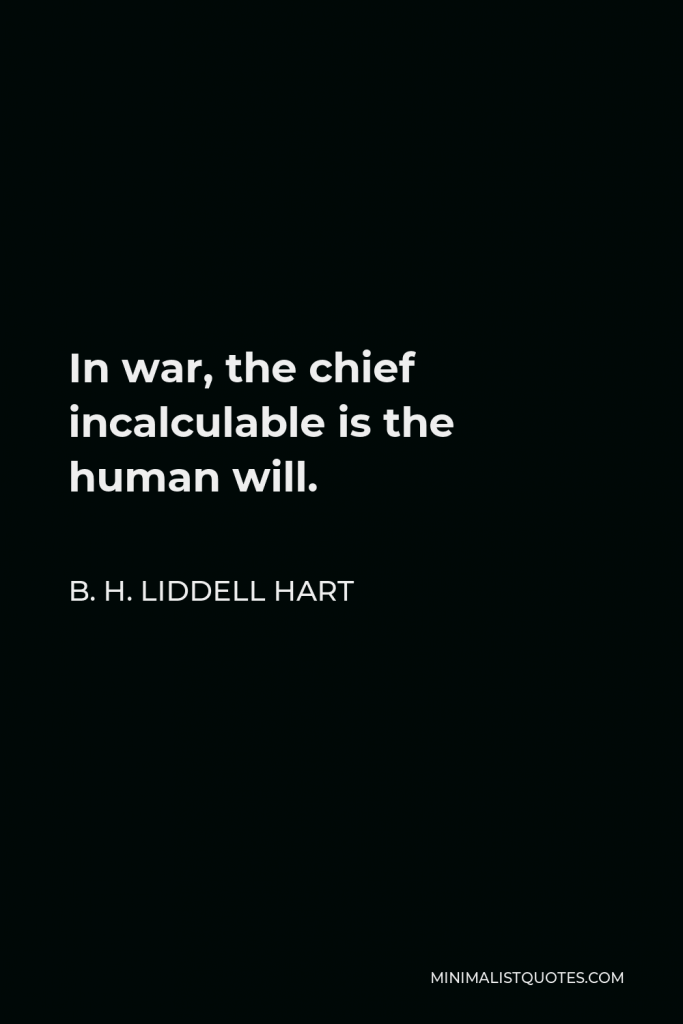

-





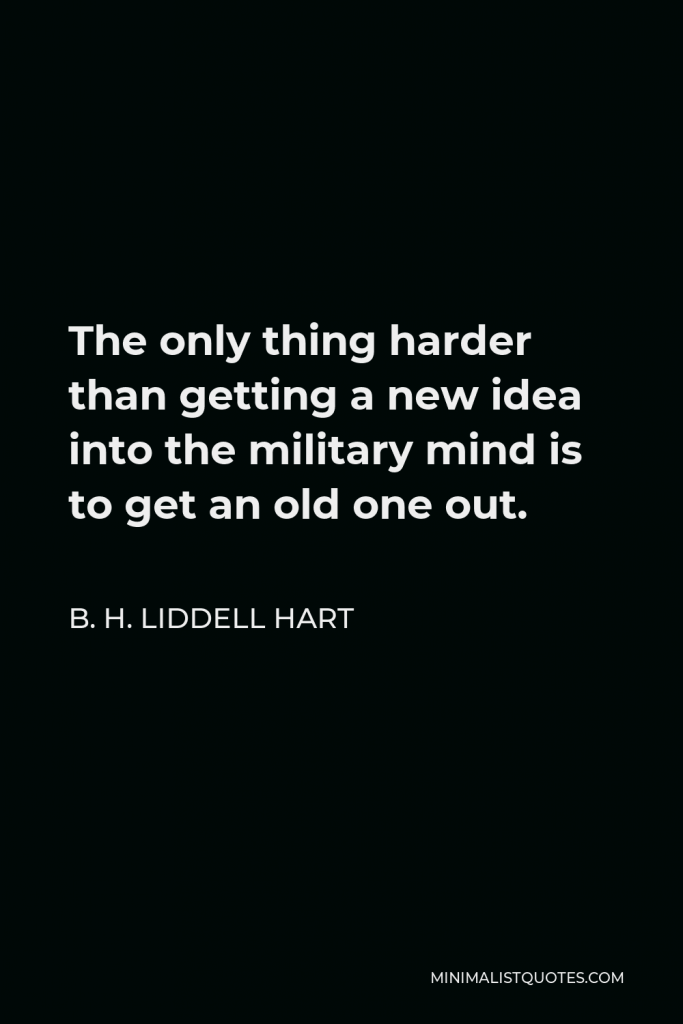

The only thing harder than getting a new idea into the military mind is to get an old one out.
B. H. LIDDELL HART -





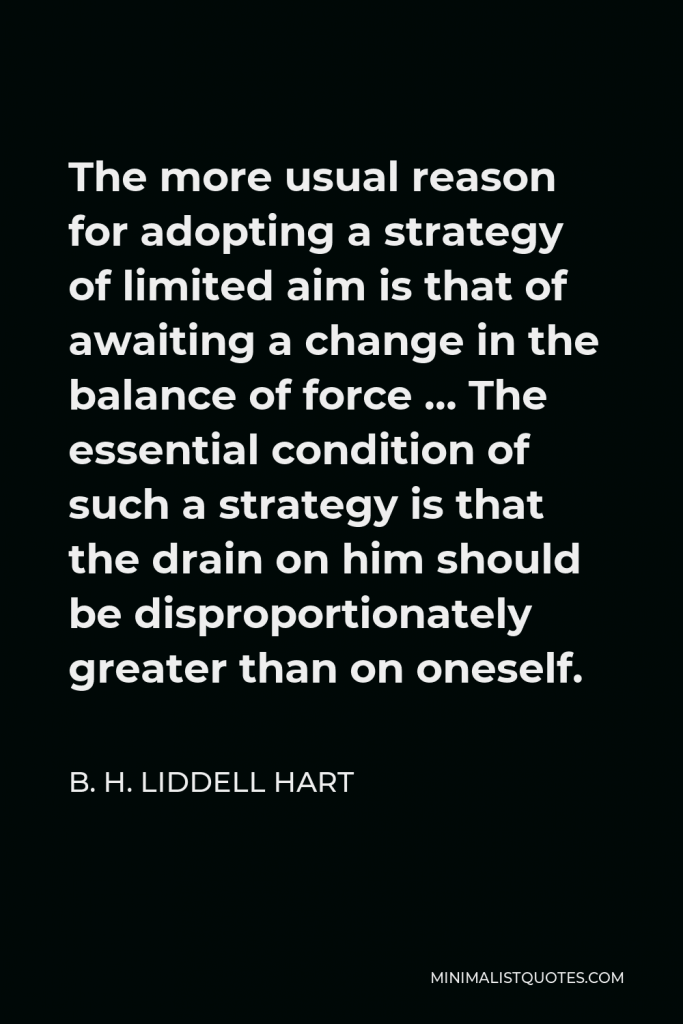

The more usual reason for adopting a strategy of limited aim is that of awaiting a change in the balance of force … The essential condition of such a strategy is that the drain on him should be disproportionately greater than on oneself.
B. H. LIDDELL HART -





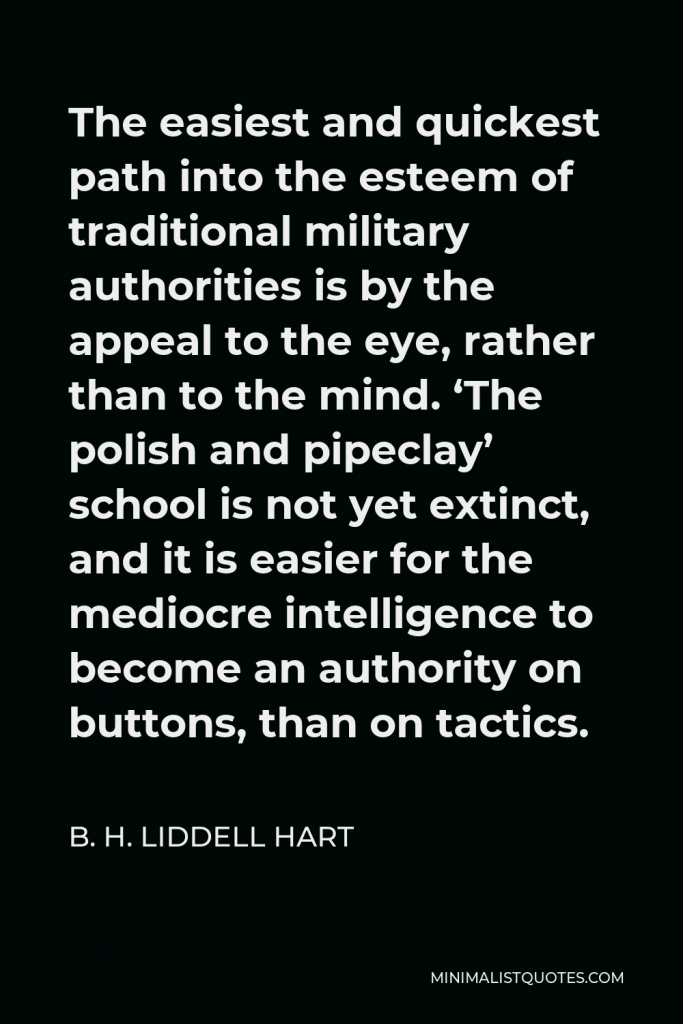

The easiest and quickest path into the esteem of traditional military authorities is by the appeal to the eye, rather than to the mind. ‘The polish and pipeclay’ school is not yet extinct, and it is easier for the mediocre intelligence to become an authority on buttons, than on tactics.
B. H. LIDDELL HART -





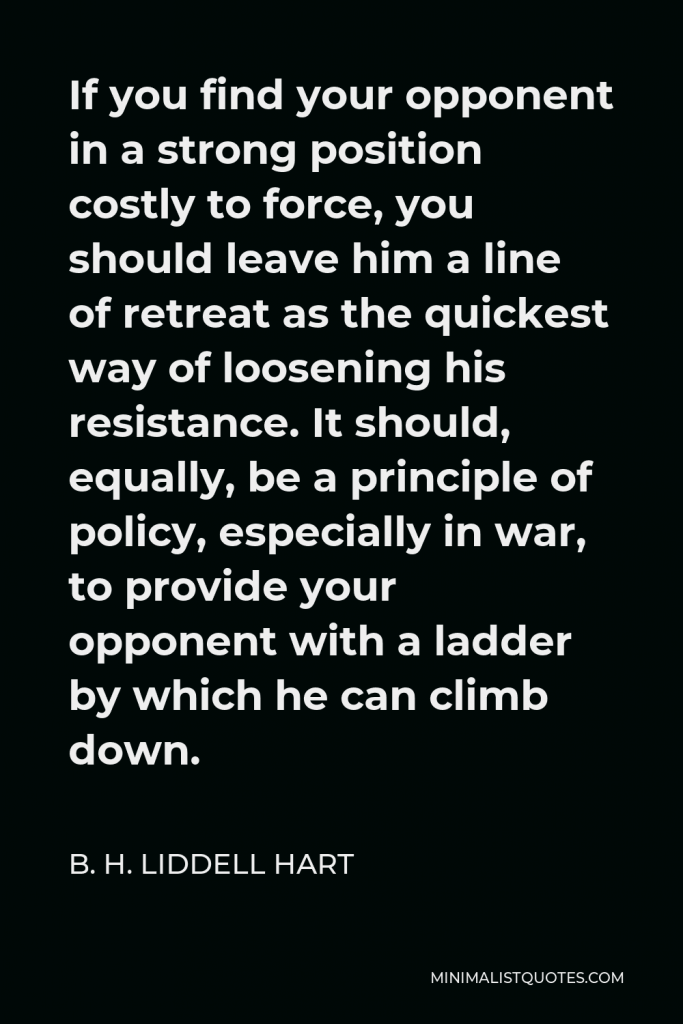

If you find your opponent in a strong position costly to force, you should leave him a line of retreat as the quickest way of loosening his resistance. It should, equally, be a principle of policy, especially in war, to provide your opponent with a ladder by which he can climb down.
B. H. LIDDELL HART -





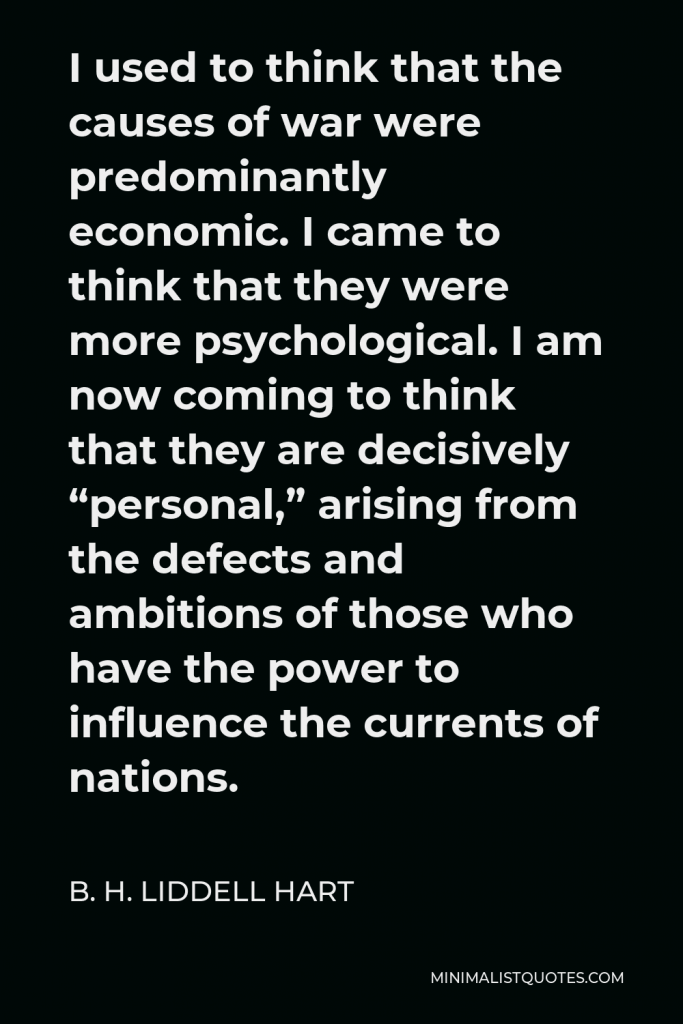

I used to think that the causes of war were predominantly economic. I came to think that they were more psychological. I am now coming to think that they are decisively “personal,” arising from the defects and ambitions of those who have the power to influence the currents of nations.
B. H. LIDDELL HART -





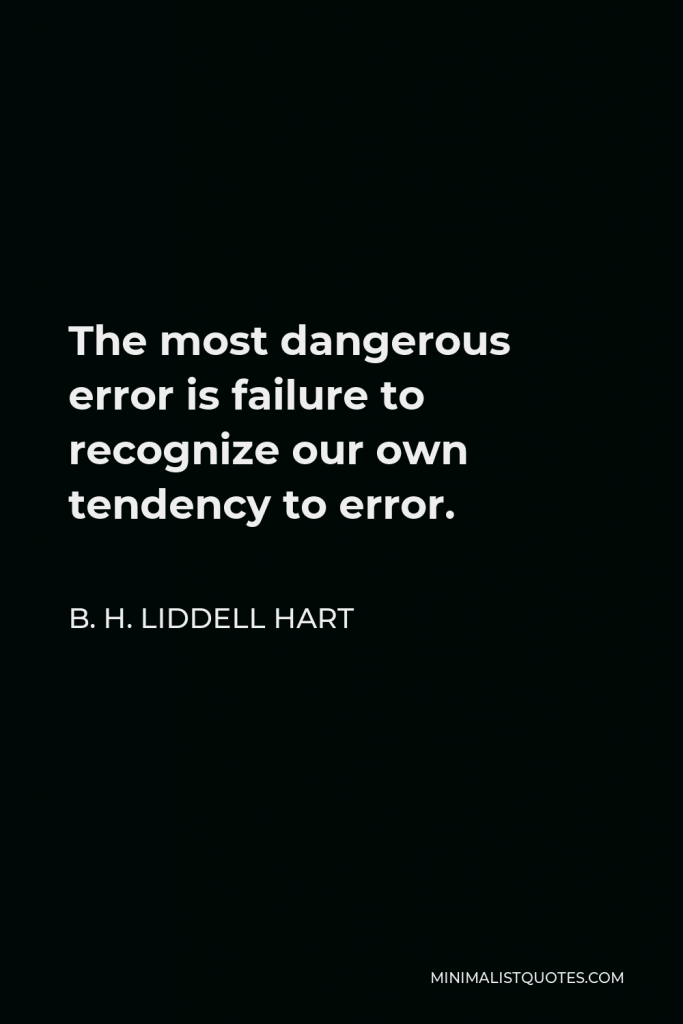

The most dangerous error is failure to recognize our own tendency to error.
B. H. LIDDELL HART -





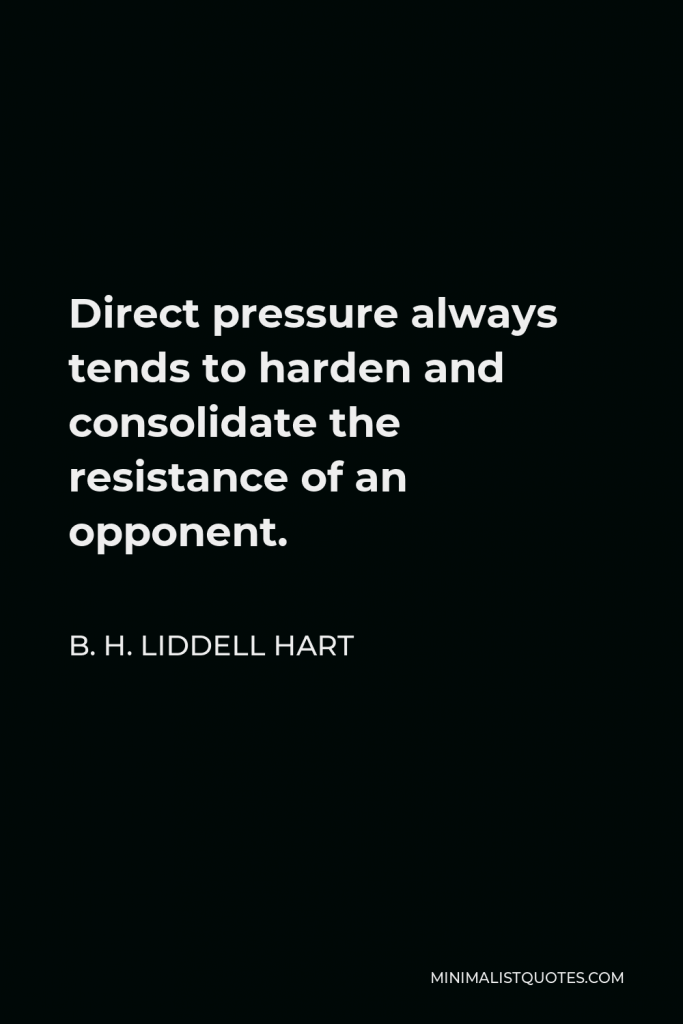

Direct pressure always tends to harden and consolidate the resistance of an opponent.
B. H. LIDDELL HART -





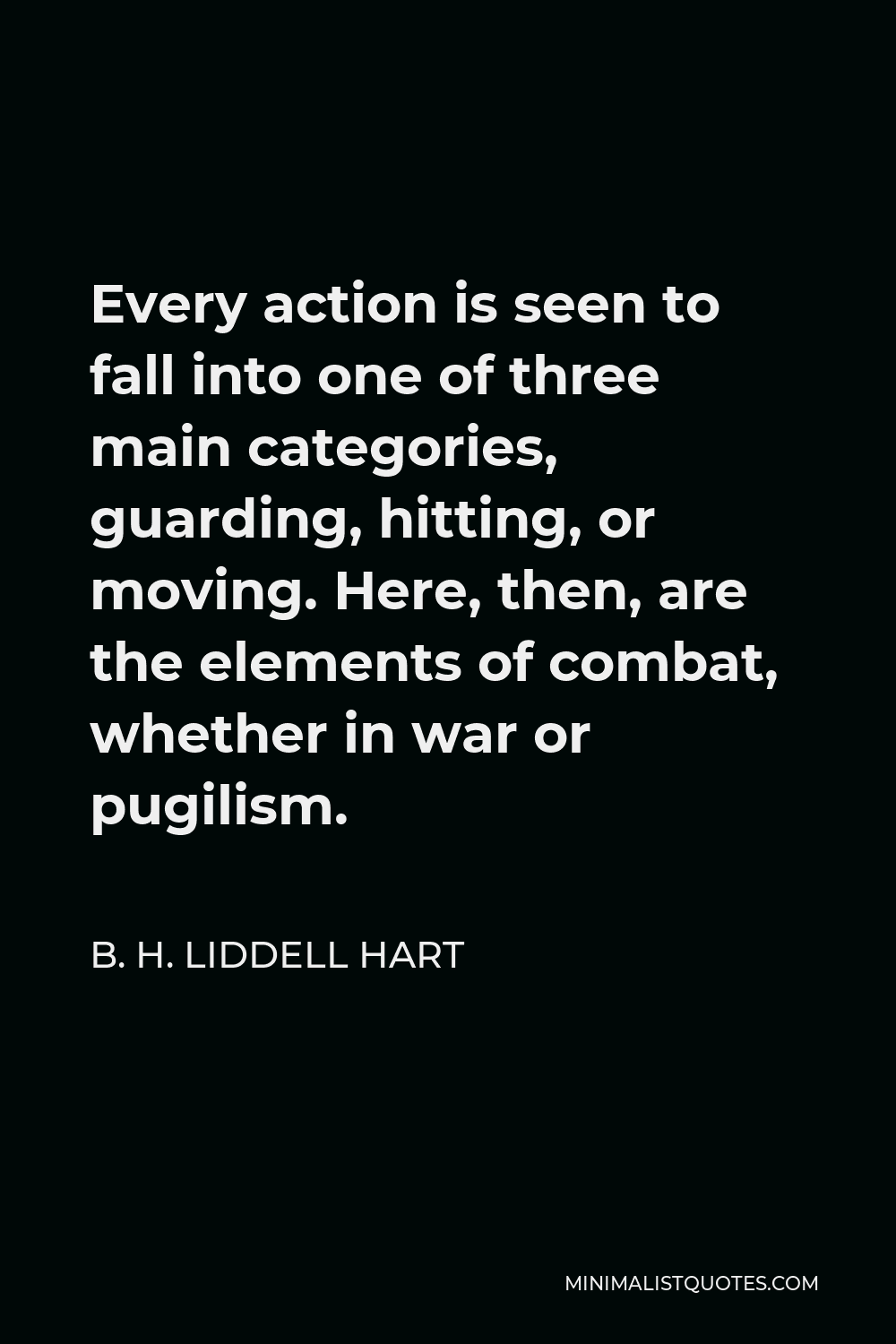
Every action is seen to fall into one of three main categories, guarding, hitting, or moving. Here, then, are the elements of combat, whether in war or pugilism.
B. H. LIDDELL HART -





![B. H. Liddell Hart Quote - The more closely [the German army] converged on [Stalingrad], the narrower became their scope for tactical manoeuvre as a lever in loosening resistance. By contrast, the narrowing of the frontage made it easier for the defender to switch his local reserves to any threatened point on the defensive arc.](https://minimalistquotes.com/wp-content/uploads/2022/10/the-more-closely-the-german-army-converged-on-stal-656x1024.jpg)

The more closely [the German army] converged on [Stalingrad], the narrower became their scope for tactical manoeuvre as a lever in loosening resistance. By contrast, the narrowing of the frontage made it easier for the defender to switch his local reserves to any threatened point on the defensive arc.
B. H. LIDDELL HART -





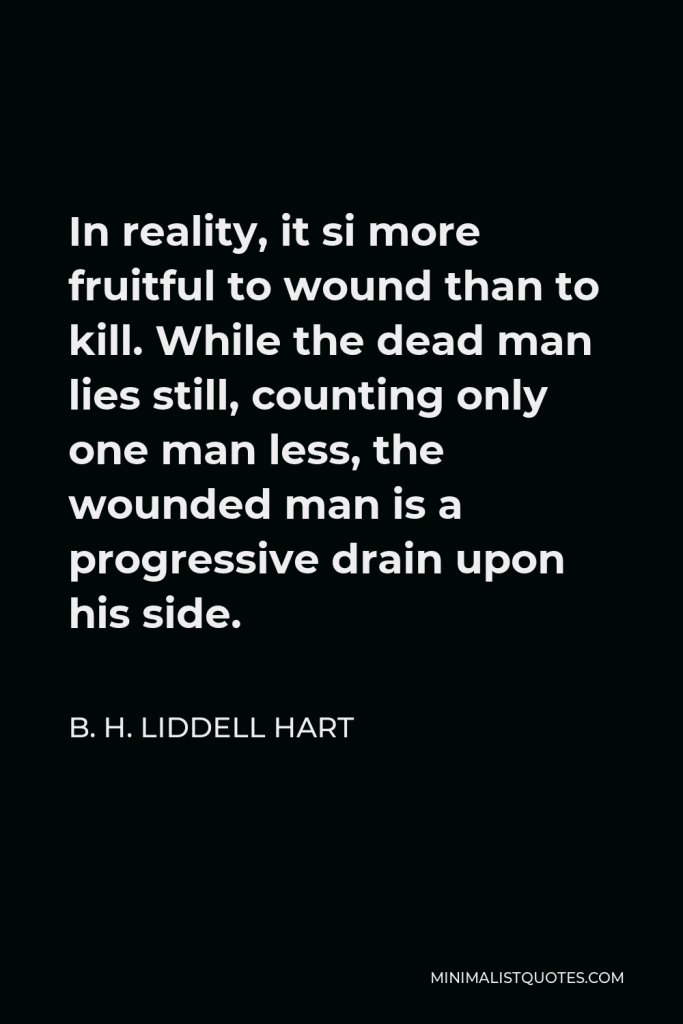

In reality, it si more fruitful to wound than to kill. While the dead man lies still, counting only one man less, the wounded man is a progressive drain upon his side.
B. H. LIDDELL HART -





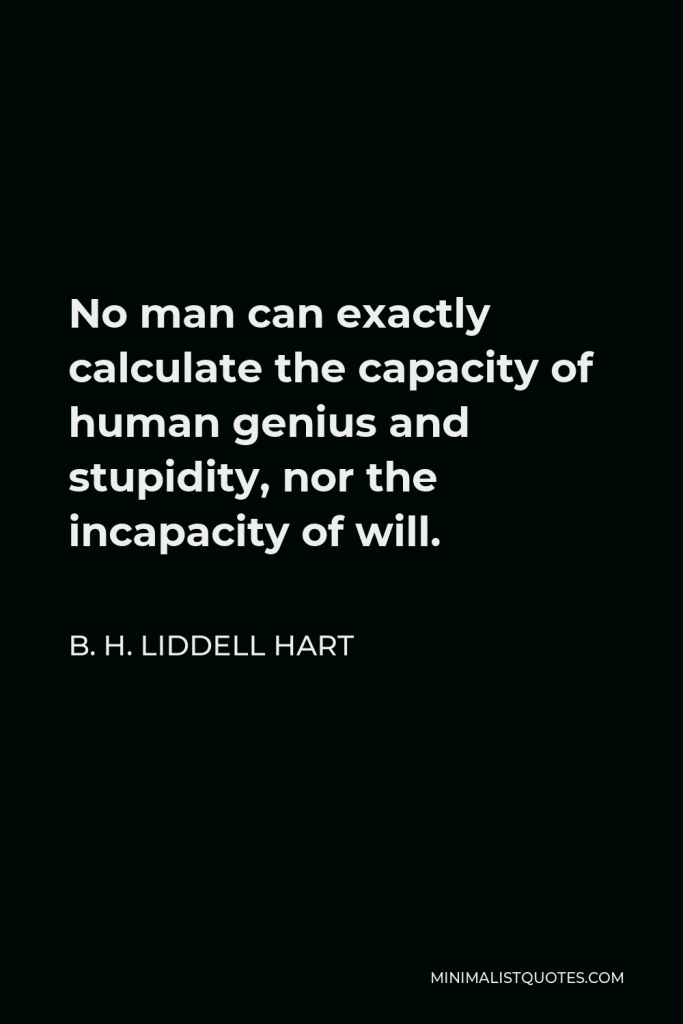

No man can exactly calculate the capacity of human genius and stupidity, nor the incapacity of will.
B. H. LIDDELL HART -





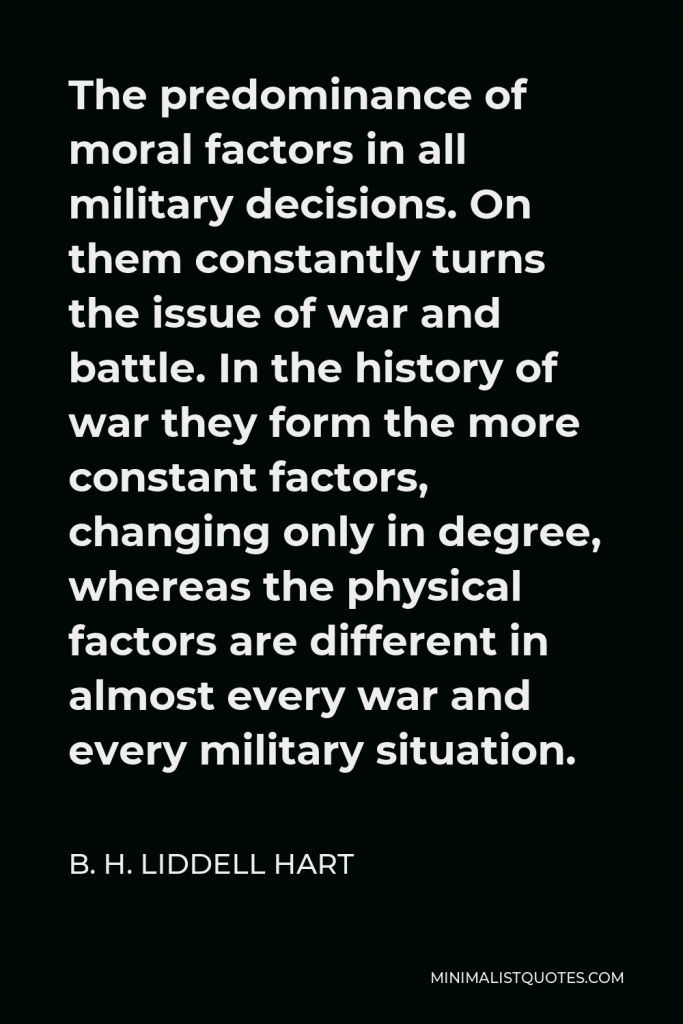

The predominance of moral factors in all military decisions. On them constantly turns the issue of war and battle. In the history of war they form the more constant factors, changing only in degree, whereas the physical factors are different in almost every war and every military situation.
B. H. LIDDELL HART -





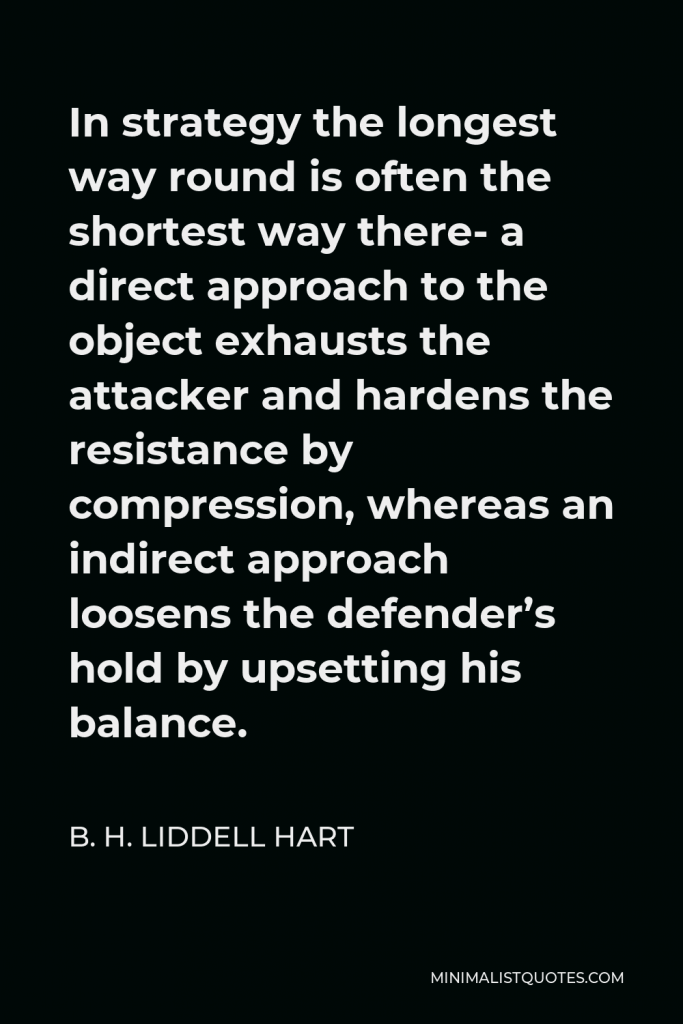

In strategy the longest way round is often the shortest way there- a direct approach to the object exhausts the attacker and hardens the resistance by compression, whereas an indirect approach loosens the defender’s hold by upsetting his balance.
B. H. LIDDELL HART -





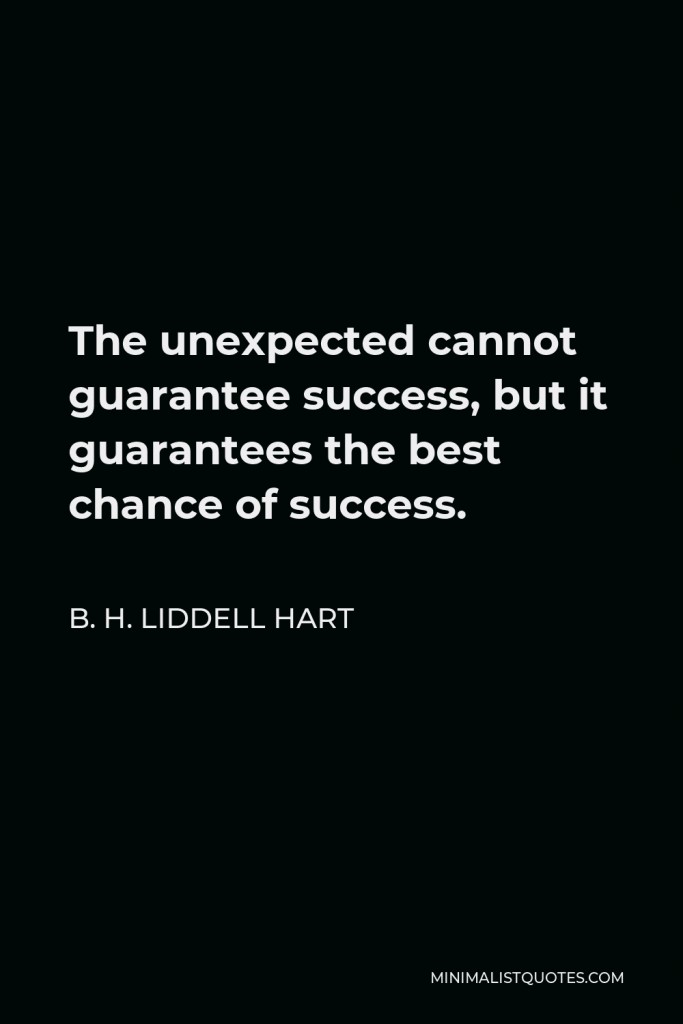

The unexpected cannot guarantee success, but it guarantees the best chance of success.
B. H. LIDDELL HART -







Natural hazards, however formidable, are inherently less dangerous and less uncertain than fighting hazards. All conditions are more calculable, all obstacles more surmountable than those of human resistance.
B. H. LIDDELL HART

